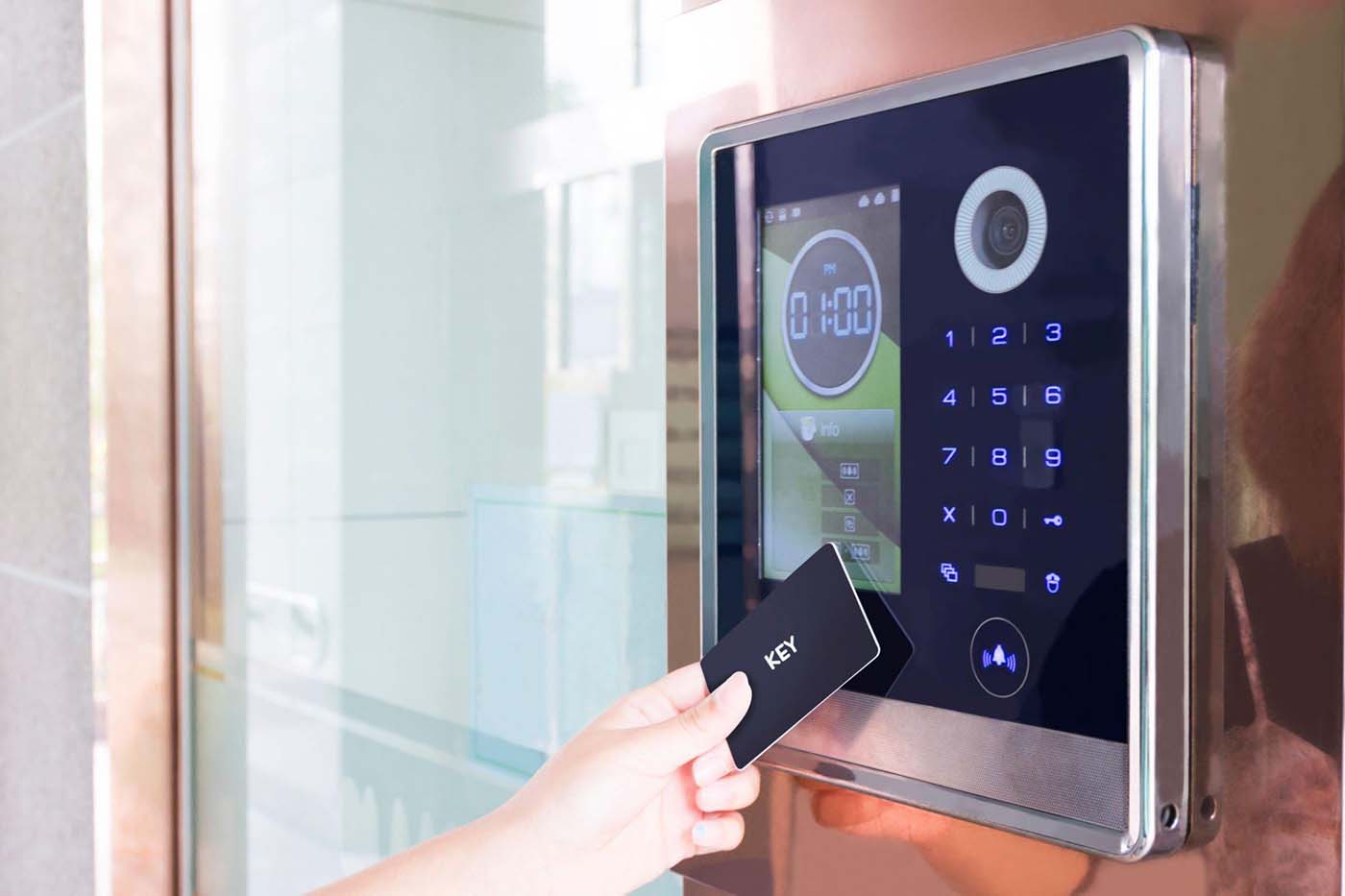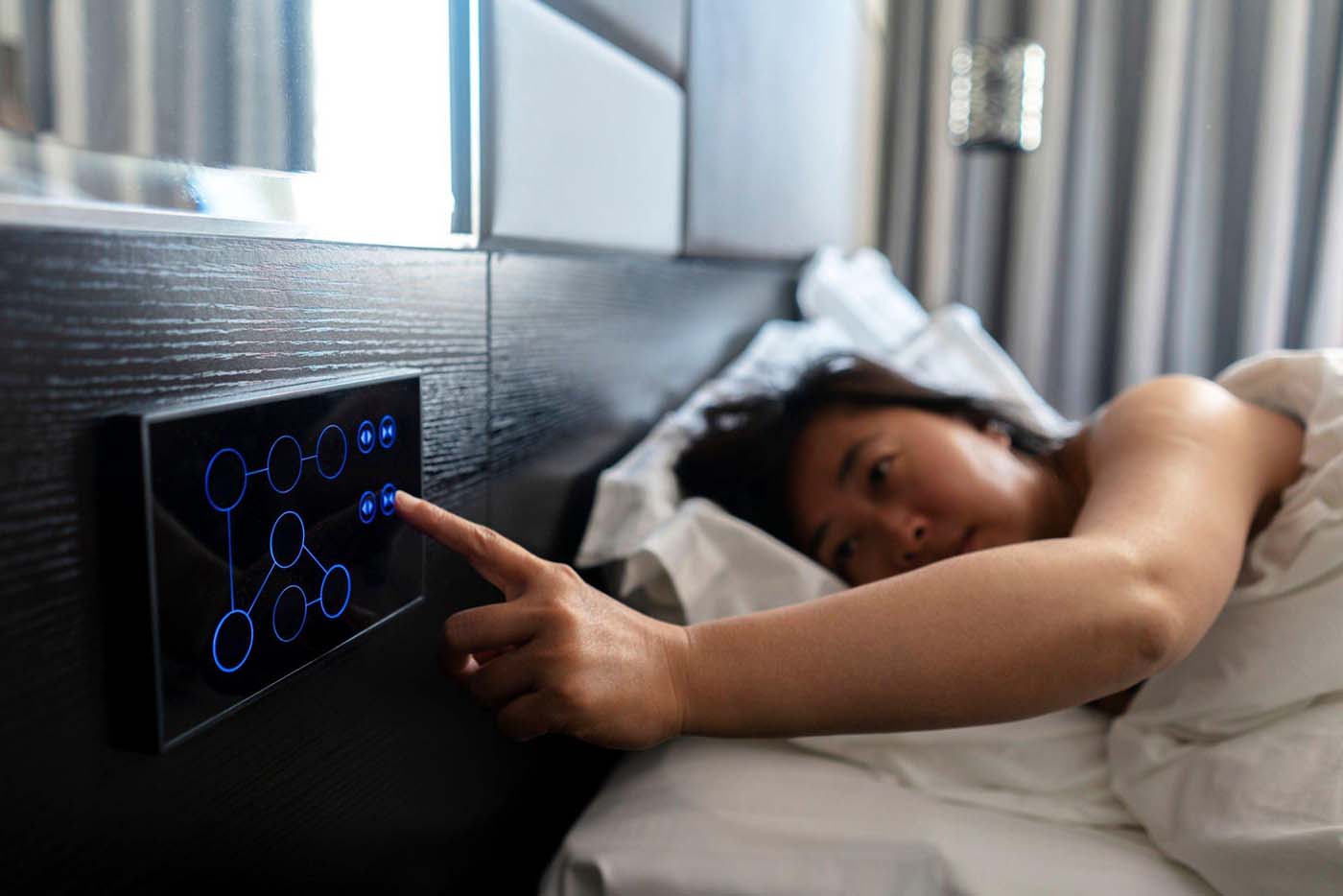Long gone are the days when the most a tourist could expect from a hotel was a comfy bed, a bathroom and perhaps a nice breakfast in the morning. Nowadays, many visitors will look for a good Wi-Fi connection and app-based controls before considering much else.
Just like any other hospitality business owners, hoteliers are constantly looking for new ways to create personalised experiences and improve flagship services for their guests. With the advent of smart technology, this undertaking has become more achievable than ever before.
From mobile access controls used to streamline and improve on-site security, to adaptive building management systems enabling guests to customise their experience, modern hotels are smarter and more advanced than many of us would have ever imagined. To explore this idea in a little more detail, let’s take a closer look at the evolution of smart hotel technologies.

Access control systems
Security has always been central to hotel technology, after all, guests have a right to privacy and an expectation that their belongings will be safe when they leave during the day. While in the past guests were expected to keep track of easily-lost keys, cards or fobs, nowadays access control can be entirely contained within a simple and easy-to-use mobile application.
As soon as guests make a reservation, time-based access credentials can be sent directly to their personal smartphones, optimising the check-in process and simplifying on-site security. Mobile access control systems have become so desirable in the hotel industry that research suggests almost 90% of guests will prioritise locations with personalised app-based services.
Most smart hotels will combine mobile access control systems with existing amenity booking software, allowing guests to freely book access to on-site gyms, saunas and sports facilities all from the same application. Integrated systems like this can also be linked to hotel loyalty programs, enabling repeat customers to benefit from using the same provider multiple times.
Occupancy management
Speaking of access control and amenity booking systems, another key aspect of smart hotel technology is occupancy management. Smart building technology systems use a variety of sensors connected via the Internet of Things (IoT) and data from IP camera systems to improve the efficiency of core services.
For example, IoT motion sensors are often used to provide guests with real-time information regarding occupancy levels in select locations. This means guests can choose to use on-site facilities at times when foot traffic is low. This data can be updated on the hotel’s mobile app platform, with customers able to program alerts notifying them when facilities are free to use.
Additionally, hotel staff can use real-time occupancy data to optimise housekeeping services. Staff can simply check to see if private rooms are in use before engaging in regular cleaning services, helping to ensure that guests are not disturbed while relaxing in their rooms.

Personalised room controls
Hotels may be viewed as a base of operations for many travellers, but at some point guests will want a little time to wind down in their rooms. In the past, creating a relaxing space will have required fiddling around with separate air con, lighting and heating controls. But thanks to smart hotel technology, today’s guests can personalise these systems from one interface.
Using IoT devices and smart building management systems, HVAC and lighting controls can all be combined within an app-based platform, enabling guests to adjust controls on the fly to create a comfortable environment. Personalised preferences can be saved and recalled at any time, meaning guests can even heat or cool their room on the way back from an outing.
Some smart hotels will even include controls for entertainment systems in these platforms, allowing guests to browse and cast streaming services directly to smart TVs in their rooms.
Guest services
Finally, smart hotel technologies have begun to transform guest services. Once a futuristic dream, many modern smart hotels now deploy robots to perform a range of guest service functions, including things like luggage handling, housekeeping and room service delivery.
Simple robots can clean floors and carry items to and from customer’s rooms, while staff members answer requests and take care of the more intricate aspects of guest services.
Some hotels have even tested out robotic bartenders and kitchen staff, acting as both an entertaining concept and a way to streamline operations. By optimising some hospitality tasks, human teams are given more time to deal with complicated customer requests and maintenance jobs, improving customer experiences and ensuring staff are not overworked.
Summary
The advent of smart technology has completely transformed customer service in hospitality environments, with hotels perhaps seeing the most obvious improvements. From security systems to amenity booking or project management software and HVAC controls to entertainment, modern guests can enjoy truly customised experiences thanks to the evolution of smart hotel technologies.








